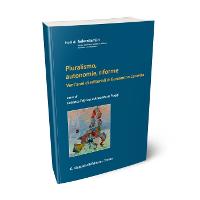
Log in or Create account
FOCUS - Human Rights N. 3 - 05/02/2020
Solidarity and Social Justice in the EU
Abstract [En]: The year 2018 was a year of important political and historical anniversaries. Among those, it certainly stands out the seventieth year from the proclamation of the Universal Declaration of Human Rights on December 10, 1948 in Paris, voted by 48 members out of 58. Since it became, in the last part of the 20 th century foundation on which the international human rights law was built, today, among other things, it must confront itself with an economic globalization (unthinkable just seventy years ago),ever-increasing sensitivity towards markets efficientism at the expense of fundamental rights safeguard, did not seem to contribute with an equivalent globalization of civil, economic, political and social rights, as expressed by the Declaration's Articles 1 and 2.This study will try to inquire whether the judicial activity of the Court of Justice in Luxembourg and the European Court of Human Rights can offer a different interpretive key, by restoring the principle that it falls within the States’ indispensable tasks to help ensure that the life of every human person does mirror, every day and in every respect, the universal image of a human dignity.
Abstract [It]: Il 2018 è stato un anno di importanti ricorrenze storiche e politiche nel mondo. Tra di esse spicca certamente il settantesimo anno dalla proclamazione della Dichiarazione Universale dei Diritti umani, avvenuta il 10 dicembre 1948 a Parigi e votata da 48 membri su 58. Divenuta nell’ultimo scorcio del ventesimo secolo il fondamento su cui è stato creato il diritto internazionale dei diritti umani, essa oggi deve, tra l’altro, confrontarsi con una globalizzazione economica sempre più sensibile all’efficientismo dei mercati a discapito della tutela dei diritti sociali fondamentali, di cui il disposto combinato degli articoli 1 e 2 della Dichiarazione universale si fa portavoce. Il presente studio, alla luce dei processi di globalizzazione che stanno in sostanza trasformando le categorie fondamentali della democrazia e cui fa seguito l’inerzia dei legislatori nazionali e comunitario, tenterà di chiedersi se invece le attività giurisdizionali della Corte di Giustizia di Lussemburgo e della Corte EDU, offrano una diversa chiave di lettura, riportando tra i compiti cui gli Stati non possono rinunciare il concorrere a che la vita di ogni persona umana manifesti ogni giorno e sotto ogni aspetto l’immagine universale della dignità umana.
Table of contents: 1. Introductory remarks. 2. What protection for social rights in the Europe of the judges? 3. About certain decisions of the Court of Justice of the European Union with regard to social rights. 4. Social rights under examination by the jurisprudence of the ECtHR. 5. Conclusions.
NUMERO 3 - ALTRI ARTICOLI
-
ITALIA - DOTTRINA
Diritto alla salute e fattore religioso nello spazio giuridico europeo. Alla ricerca di un laico e sostenibile pluralismo etico
ITALIA - DOTTRINASolidarity and Social Justice in the EU
-
ITALIA - DOTTRINA
La Corte di giustizia ''resetta'' il diritto all'oblio
ITALIA - DOTTRINAOrdinamento costituzionale e Protocollo n. 16 alla CEDU
-
ITALIA - DOTTRINA
Le droit à la liberté d'expression de l'enfant à l’heure des plateformes de socialisation en ligne et les chantiers ouverts en Italie
ITALIA - DOTTRINAReati ostativi e benefici premiali
ITALIA - DOTTRINAL’Autorità indipendente per i diritti umani in Italia



 Registrati
Registrati Login
Login
 Riforme istituzionali e forma di governo
Riforme istituzionali e forma di governo Lavoro Persona Tecnologia
Lavoro Persona Tecnologia Osservatorio di Diritto sanitario
Osservatorio di Diritto sanitario Osservatorio Trasparenza
Osservatorio Trasparenza Africa
Africa Human Rights
Human Rights America Latina
America Latina Territorio e Istituzioni
Territorio e Istituzioni Storico focus
Storico focus Scarica il Documento integrale
Scarica il Documento integrale STUDI FEDERALISMI
STUDI FEDERALISMI





25/01/2023
14/10/2022
18/05/2022
22/09/2021
28/12/2020
27/07/2020
05/02/2020
04/10/2019
01/05/2019
26/12/2018
29/10/2018
25/06/2018
29/12/2017
28/07/2017
13/03/2017
07/10/2016
17/06/2016
22/01/2016
25/09/2015
03/07/2015
03/04/2015
16/01/2015
24/10/2014
20/06/2014
28/03/2014
20/12/2013
16/09/2013
17/05/2013
15/02/2013